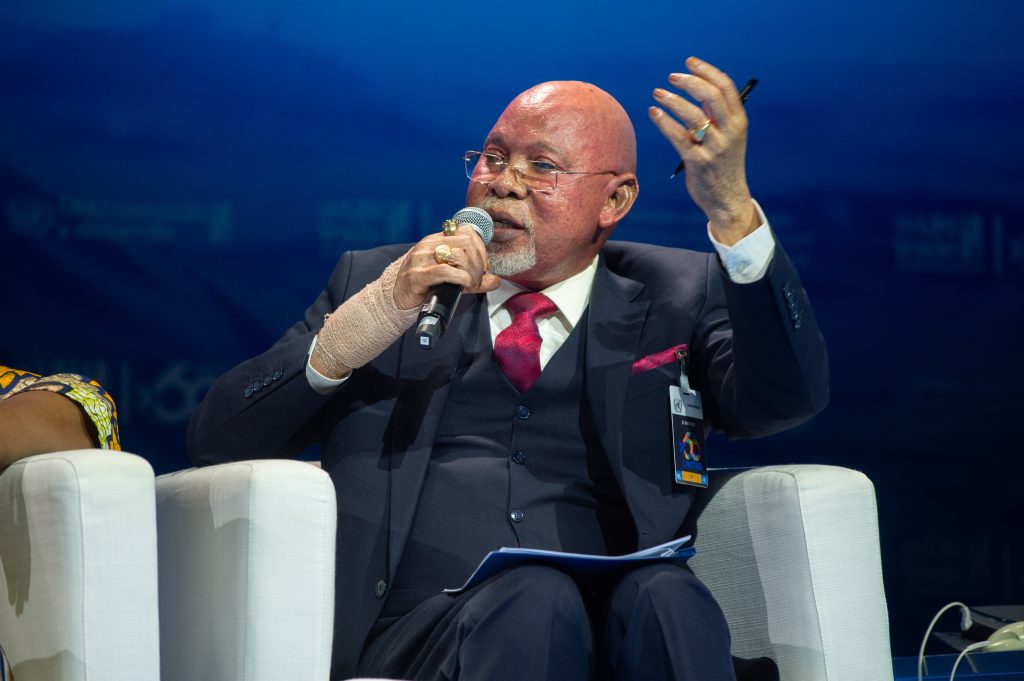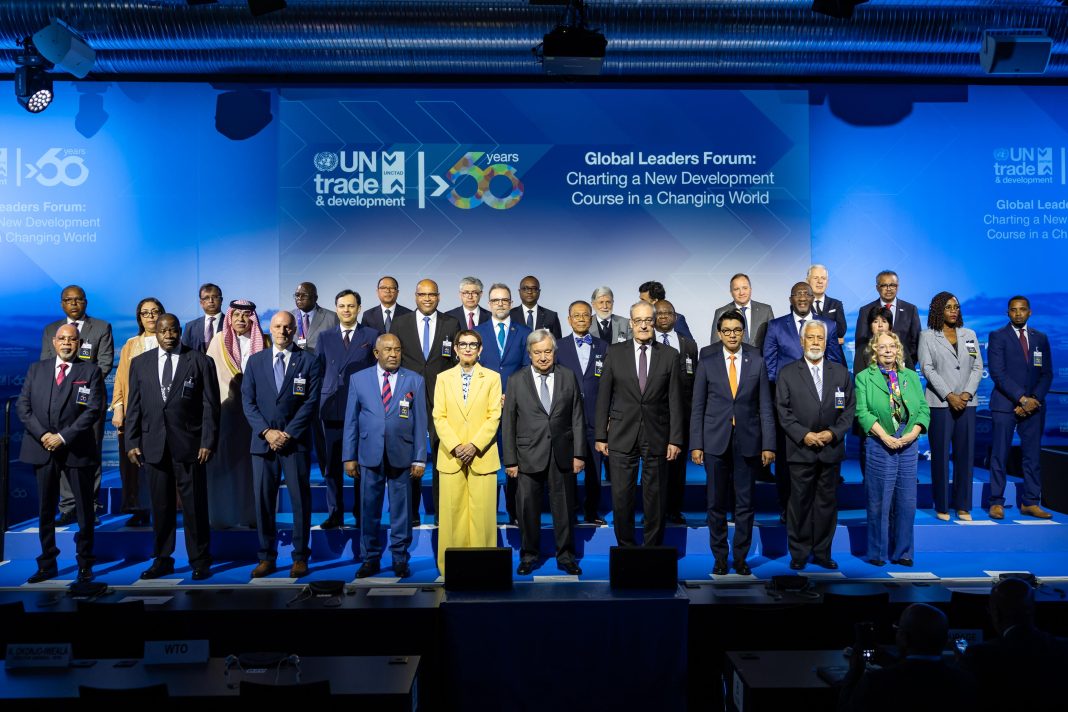The Minister of Foreign Affairs, Hon. Odongo Jeje Abubakhar is on a two-day visit to the United Nations in Geneva, to represent H.E. President Yoweri Kaguta Museveni at the commemoration of the 60th Anniversary of the United Nations Conference on Trade and Development (UNCTAD). He also joined Ministers of Foreign Affairs at the Global Leaders’ Forum. The theme for the Forum is charting a new development course in a changing world. Hon. Odongo is joined in the meetings by Permanent Representative to the UN in Geneva, Amb. Marcel Tibaleka and staff of the Uganda Permanent Mission.
Addressing the World leaders, UN Secretary-General, Antonia Guterres highlighted the multiple challenges standing in the way of a more sustainable and inclusive global economy for all. “The world’s international financial architecture has been exposed as outdated, dysfunctional, and unjust,” said Guterres. He emphatically added that “the world cannot afford splits into rival blocs. To implement the Sustainable Development Goals (SDGs) and to ensure peace and security, we need one global market and one global economy, in which there is no place for poverty and hunger.” Expressing deep concern about trade inequalities, Guterres emphasized that the right to development is inextricably linked with trade, which the world’s poorest countries “which are now mired in debt, through no fault of their own, have every right to pursue on much fairer terms”

UNCTAD Secretary-General Rebeca Grynspan identified the digital economy as a powerful new engine of development, which is transforming trade itself, making it intangible and easy to scale, while at the same time risking to deepen divides and inequalities. She said that the resurgence of industrial policy signals a welcome recognition that the state has a vital role to play in fostering development and transformation, cautioning, however that “for many developing nations, burdened by debt and limited fiscal space, this resurgence is a distant horizon”.
In his intervention at the Global Leaders Dialogue, Hon. Odongo said that UNCTAD has played a crucial role in supporting Uganda’s economic development through various initiatives aimed at enhancing trade, investment, and sustainable development. He emphasized that urgency should be placed on the most effective actions to accelerate the implementation of the 2030 Agenda for Sustainable Development and about how to enhance coherence between national development strategies and the global economic processes.
Hon. Odongo emphasized that the Summit of the Future is expected to demonstrate that international cooperation can effectively tackle current challenges. “Two issues that deserve special attention are industrialization, south-south economic cooperation, and digitalization,” said Odongo, adding that industrialization is essential for sustained economic growth and transformation in rural and informal economies, while south-south economic cooperation and integration are crucial for global actions to advance the Sustainable Development Goals.
He cautioned that, the widespread adoption of frontier technologies in developed countries is reducing labor-cost competitiveness and widening the technological gap between developing and least developed countries. “Countries must prepare for these technologies to create economies that offer better-paying jobs, especially as many developing and least developed countries are experiencing a youth bulge due to increasing jobless growth,” he said, adding that charting a new development course, effective technology transfer and greater policy and regulatory space for developing countries must be strengthened, along with aligning STI and industrial policies, building basic digital skills, and closing gaps in ICT infrastructure.























